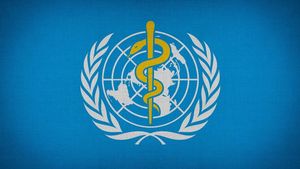JAKARTA - Professor of the Faculty of Medicine, University of Indonesia (FKUI), Prof. Tjandra Yoga Aditama, revealed that seven resolutions of the World Health Organization (WHO) for 2025 provide new hope in improving the quality of world health.
"WHO sets at least seven main targets that are expected to be achieved by 2025, consisting of four specific targets and three global health priorities," said Prof. Tjandra in his statement as quoted by ANTARA.
He explained that the first target is to improve welfare and health for an additional 1.5 billion people worldwide by 2025. "This is a very noble and important target to be realized, including in our country," he added.
The second target, WHO projects an additional 585 million people who can get essential health services this year. This essential service ensures affordable access to health for all levels of society. "This is very relevant to Indonesia," said Prof. Tjandra.
The third target is the protection of 776.9 million people from health emergencies such as major outbreaks and pandemics. To make this happen, WHO is working to finalize a global agreement regarding pandemic control, or known as the Pandemic Agreement, to protect the world from the threat of a pandemic in the future.
Prof. Tjandra, who was a member of the Indonesian Delegation in the discussion of the Pandemic Agreement, said that until the end of 2024, the agreement had not been reached due to the intense negotiation process. "Unfortunately, negotiations between WHO member countries are still very tough," he said.
The fourth target is to reduce stunting prevalence in toddlers by up to 40 percent worldwide by 2025. Prof. Tjandra also encourages the government and the people of Indonesia to work together to significantly reduce stunting rates in the country.
SEE ALSO:
In addition to the four targets, WHO has also set three main health priorities for 2025. The first priority is to encourage multi-sectoral investment in non-communicable disease control (PTM) and improve mental health.
The second priority is to integrate control and response to PTM and mental health into the public funding system.
The third priority includes accelerating the program to achieve Universal Health Coverage (UHC), which aims to provide equitable and affordable health protection for the entire world's population.
"These seven steps are an important road map to achieve better health degrees at the global level, including in Indonesia," concluded Prof. Tjandra.
The English, Chinese, Japanese, Arabic, and French versions are automatically generated by the AI. So there may still be inaccuracies in translating, please always see Indonesian as our main language. (system supported by DigitalSiber.id)

















